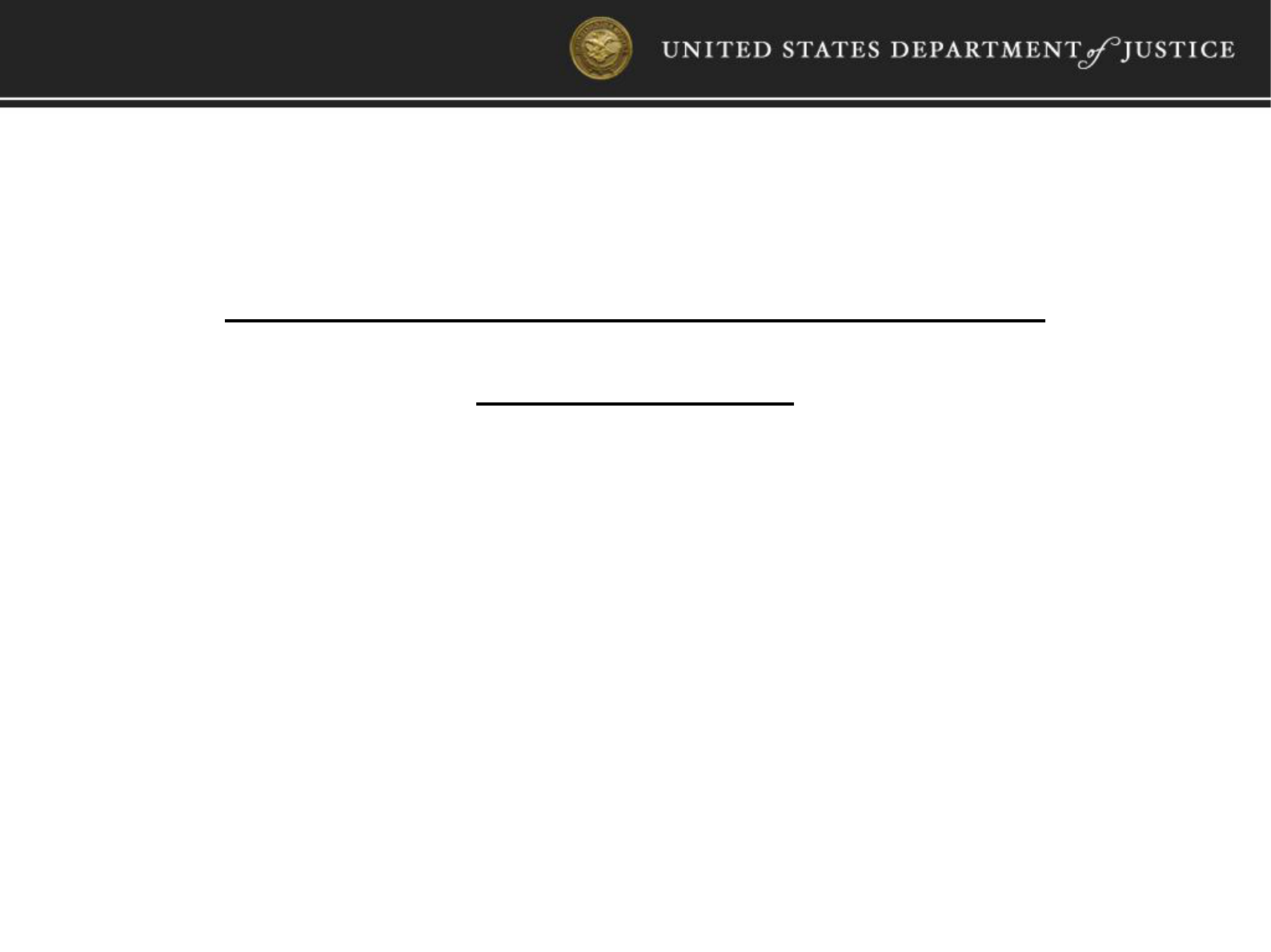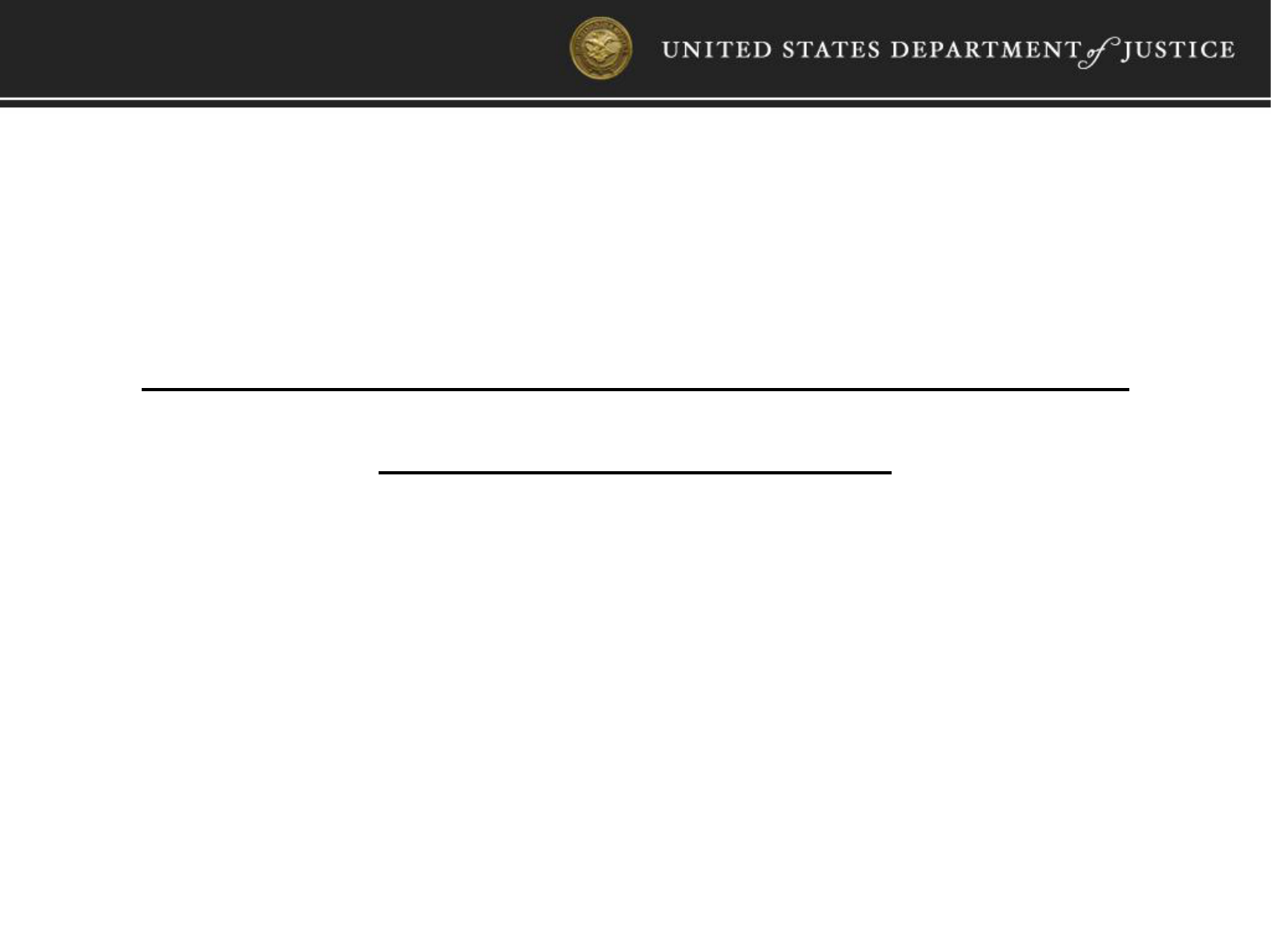
An Overview of the
Freedom of Information Act
Procedural Requirements
1

The Freedom of Information Act
Statutory Definition
Agencies, upon receiving requests for records
which (i) reasonably describes the records sought
and (ii) are made in accordance with published
rules stating the time, place, fees (if any), shall
make records promptly available.
2

The Freedom of Information Act
The FOIA pertains to federal
agency records that exist and
can be located in agency files.
3

4
The Freedom of Information Act
Who May Make A FOIA Request?
“Any person” – regardless of
citizenship
Includes individuals, corporations,
associations, state and local
governments, foreign government, etc.

5
The Freedom of Information Act
Who May Make A FOIA Request?
The Exceptions
Fugitives from Justice, if the requested
records relate to the requester’s
fugitive status
Foreign governments requesting
information from intelligence agencies

What records are subject to the FOIA?
Agency records
The factors:
Two-part test:
• Created or obtained by agency
• Under agency control when request
received
6
The Freedom of Information Act

What records are subject to the FOIA?
Agency records
The factors:
Four factors:
• Creator’s intent to control
• Ability of the agency to use
• Extent to which personnel have read/relied
• Degree of integration into agency files
7
The Freedom of Information Act

The
“why”
behind the request
FOIA requesters generally do not have to
justify or explain their reasons for making
requests. The why is important in two
circumstances:
• When expedited processing is requested
• When a fee waiver is requested
8
The Freedom of Information Act

9
The Freedom of Information Act
A Proper FOIA Request?
Request for agency records submitted
in writing
Request reasonably describes records
requested
Request complies with agencies
regulations for making requests

10
The Freedom of Information Act
Receipt and Acknowledgment
Receipt of the request starts the time
clock
If the request will take longer than ten
days to process, agency must assign an
individual tracking number to the
request

11
The Freedom of Information Act
Receipt and Acknowledgment
Agencies must establish either “a telephone line or
internet service that provides information about
the status of a request to the person making the
request using the assigned tracking number”
Status information to be provided includes the date
of receipt and an estimated date of completion

12
The Freedom of Information Act
Receipt and Acknowledgment
Routing Requirement
Agencies must “route”/“forward” misdirected
requests to the proper office.
The 20-day time period begins on the date the
request is first received by the appropriate
component of the agency, but in any event not
later than 10 working days after the request is first
received by any component of the agency that is
designated in the agency’s regulations to receive
requests.

13
The Freedom of Information Act
Routing Requirement
This rule addresses the situation where a FOIA
request is inadvertently addressed to a component
that is designated to receive FOIA requests for the
agency, but is not itself the proper component of
the agency to process the request.
The receiving/“wrong” component has 10
working days to route the request to the proper
component within the agency. On the 10
th
day the
20-day response time period begins . . . even if the
proper component has yet to receive the request.

14
The Freedom of Information Act
Time Limits for Responding to a Request
20 working days to respond
In “unusual circumstances” agency may
extend time limit by giving written notice
to requester
If time period is extended beyond ten
working days agency must provide
requester with opportunity to narrow scope
of request and must make FOIA Public
Liaison available

15
The Freedom of Information Act
Time Limits for Responding to a Request
“Unusual circumstances” defined:
• search for/collect records from facilities
separate from the office processing the
request
• search for/collect/examine a voluminous
amount of separate and distinct records
• consult with another agency or among two
or more components within the agency

16
The Freedom of Information Act
Time Limits for Responding to a Request
Tolling
The number of times the agency can toll the
response time is limited.
Tolling can only occur if the request is properly
made and the clock already started.

17
The Freedom of Information Act
Time Limits for Responding to a Request
Tolling
When a proper FOIA office receives a request, it
determines whether or not the request is reasonably
described and meets the other requirements for making a
proper request. If necessary, the office then
communicates with the Requester to resolve any issues.
The 20-day clock begins to run upon receipt of a proper
request.
It is only after this point that the issue of
tolling/stopping would even arise.

18
The Freedom of Information Act
Time Limits for Responding to a Request
Tolling
Limit to number of times tolling allowed. Toll the 20-
day clock in only two situations:
• One time when the agency is waiting for general
information it has reasonably requested from
Requester.
• Agencies are allowed to toll the 20-day clock as
many times as necessary in order to clarify any
issues with a Requester regarding fee assessment.
Fee-related issues often arise sequentially over the
course of processing a request, and cannot always
be resolved at one given point in time.

19
The Freedom of Information Act
Limits on Charging Search Fees
Agencies are prohibited from charging certain fees if
they do not meet the response time.
The FOIA prohibits agencies from assessing search fees
(or duplication fees if requester is an educational or non-
commercial, scientific institution, or representative of the
news media) if the agency fails to meet the 20-day
response time limit, unless unusual or exceptional
circumstances apply to the processing of the request.

20
The Freedom of Information Act
Limits on Charging Search Fees
Exceptions to the Rule
If either “unusual” or “exceptional” circumstances
apply to the processing of the request, the
exceptions to the rule apply and agencies can
assess fees as they have normally done.
The pre-existing definitions of “unusual” and
“exceptional” circumstances apply to this search
fee rule.

21
The Freedom of Information Act
Limits on Charging Search Fees
Exceptions to the Rule
“Unusual Circumstances” exist in three situations:
• When there is a need to search for and collect
records from separate offices;
• When there is a need to search for, collect, and
examine a voluminous amount of records; or
• When there is a need for consultations with another
agency or among two or more components within
the same agency.

22
The Freedom of Information Act
Limits on Charging Search Fees
Exceptions to the Rule
“Exceptional Circumstances”:
• The FOIA states that exceptional circumstances
cannot include a “delay that results from a
predictable workload of requests . . . unless the
agency demonstrates reasonable progress in
reducing its backlog of pending requests.”
• In other words, exceptional circumstances exist if
the agency has a backlog of pending requests and is
making reasonable progress in reducing that
backlog.

23
The Freedom of Information Act
Time Limits for Responding to a Request
Expedited Processing
Compelling need -- imminent threat to the life
or physical safety of an individual
Urgency to inform the public concerning
actual/alleged Federal Government activity
(with respect to a request from one engaged
primarily in disseminating information)
Agencies may add other grounds for granting
expedited processing

The Freedom of Information Act
Time Limits for Responding to a Request
Expedited Processing
Agencies have 10 calendar days to decide
whether to grant or deny requests for
expedition.
24

The Freedom of Information Act
Time Limits for Responding to a Request
Expedited Processing
Agencies must process requests that have
been granted expedition as soon as
practicable.
25

The Freedom of Information Act
Time Limits for Responding to a Request
Expedited Processing
Standard of Review
26

27
The Freedom of Information Act
Initial Processing
Interpretation and Communication
Reasonable interpretation of
unclear requests
Communication with requester
FOIA Public Liaison
Multi-track processing encouraged

Definition of Search
To review manually or by automated
means, agency records for the
purpose of locating those records
responsive to a request.
28
The Freedom of Information Act

29
The Freedom of Information Act
Search
Identify potential locations for
responsive records
Issue search instructions
Documentation of search
Cut-off date for search

Search Review Dup.
Commercial Use Yes Yes Yes
“Favored” No No Yes*
All Others Yes** No Yes*
* “Favored” and All Others requesters receive the
first 100 pages of duplication free of charge per
request.
** All Others requesters receive the first two hours
of search free of charge per request.
30
Who Pays What?

31
The Freedom of Information Act
Adequacy of Agency Search
Agency must conduct search that is “reasonably
calculated to uncover all relevant documents”
The fact that the agency did not locate all
requested records does not cast doubt on
otherwise reasonable search
Duty to search -- must make reasonable efforts
to search for records in electronic form unless
significant interference with the operations of
agency’s automated information system

32
The Freedom of Information Act
Reviewing the Documents
Applying the Exemptions, Segregation
Agencies are to clearly identify the exempt
information and apply the appropriate exemption
beside each redaction
Duty to reasonably segregate
• Attorney General emphasizes agency
obligation to segregate and apply foreseeable
harm standard

Reviewing the Documents
Referrals/Consultations
Referral
– When records are referred to the originating
agency or agency component for FOIA review and direct
response to the requester.
Consultation
- When an agency obtains the opinion of
another agency or agency component before responding
to the requester.
Coordination
– When records contains sensitive law
enforcement or national security information.
33
The Freedom of Information Act

34
The Freedom of Information Act
Response to the Requester
What information should appear in the final response letter?
Identification of responsive records
Volume estimate of information withheld
Identification of exemptions asserted
Administrative appeal rights
Must provide records in any form requested “if
readily reproducible”

Administrative Appeal
Requesters may appeal an adverse determination to
the designated agency official if for example, all or
part of a request is denied, or no responsive records
are located.
The agency’s administrative appeal authority will
review the initial action taken on the request and can
direct that further actions be taken.
35
The Freedom of Information Act

Administrative Appeal
The determination on appeal must notify the
requester of the right to seek judicial review.
As a matter of good administrative practice, appeal
determination letters should also advise requesters
of the mediation services offered by the Office of
Government Information Services, located at the
National Archives and Records Administration.
36
The Freedom of Information Act

Judicial Review
The FOIA provides requesters with the
right to challenge an agency’s decision in
federal court.
Agencies have the burden of proof and
must demonstrate to the court that no
record has been improperly withheld.
37
The Freedom of Information Act
